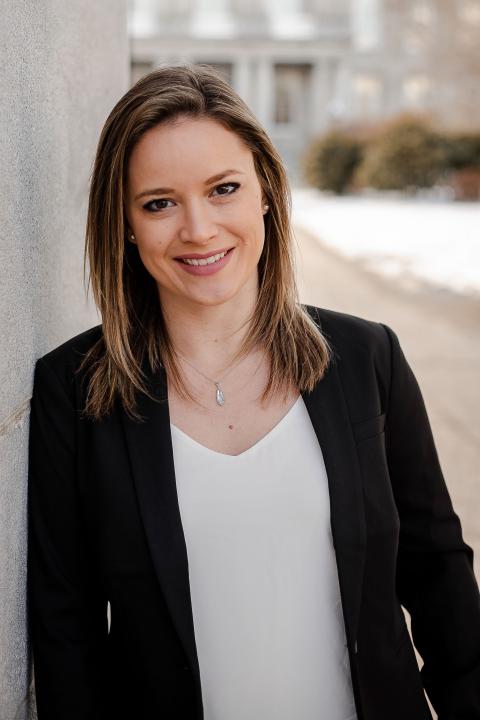2Ls Zosia Busé and Coda Campbell Appointed Fellows to Legal Education Police Practices Consortium (LEPPC)
Last month, the Legal Education Police Practices Consortium (LEPPC) named two UNH Franklin Pierce JD candidates to its fellowship program.
2Ls Zosia Busé and Coda Campbell were selected to help the LEPPC, a criminal justice arm of the American Bar Association, “examine and address legal issues in policing and public safety, including conduct, oversight, and the evolving nature of police work.” Both Busé and Campbell will conduct their fellowships with the Portsmouth, New Hampshire Police Department.

Campbell earned her undergraduate degree in law enforcement and justice administration from Western Illinois University, and had initial plans to become a police officer. Those plans changed when she accepted a commission as an active-duty officer in the US Army, where she served for eight years. Campbell selected UNH Franklin Pierce when considering law schools in part because of the school’s Yellow Ribbon program, which offers generous financial aid for military veterans. In her work as a fellow, she hopes to offer feedback to Portsmouth PD that will improve the department’s diversity in hiring practices.
“The criminal justice system always has room to grow and develop,” says Campbell, a Daniel Webster Scholar. “Police reform — specifically, by working directly with local police departments — is an immediate way we can impact the criminal justice system. This seems surgical, but our work has the potential of having an enormous impact on the system overall.”
Before enrolling at UNH Franklin Pierce, Busé studied social policy, conflict resolution, and law at Brandeis University. The LEPPC Fellowship piqued her interest because it seeks to address shortcomings in policing practices and the disparities those deficiencies can create. She hopes to learn as much as she can about the legal mechanisms that have disparate impacts on the BIPOC community through the seminars offered to fellows by the ABA.

“Investigating these dynamics through the fellowship will unfold and begin to reconcile manifestations of racism in the criminal justice system,” says Busé, who serves as a teen accountability board member for the Merrimack County Juvenile Diversion Program. “My specific project will be to investigate police force diversity in recruitment and retention.”
In addition to working with designated mentors from the law school faculty, as LEPPC Consortium Fellows, Campbell and Busé will conduct independent research, participate in calls with other fellows, and conduct gap analysis for the Portsmouth Police Department with the hope of promoting positive change.
“I hope to identify solutions and create proposals that can be applicable to the Portsmouth PD,” says Busé, “but also for other police departments around the country.”